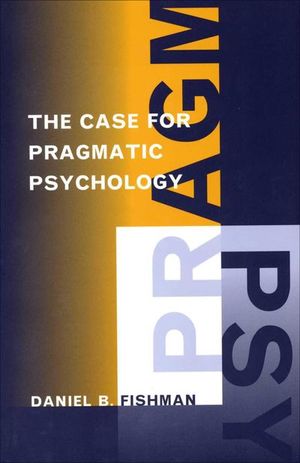The Case for Pragmatic Psychology
Published by NYU Press
The best method is the one that works: “Should be read not only by professional psychologists but by anyone interested in the future of mind-related science.” —John Horgan, author of The End of Science
A cursory survey of the field of psychology reveals raging debate among psychologists about the methods, goals, and significance of the discipline—psychology’s own version of the science wars. The previous unification of the discipline has given way to a proliferation of competing approaches, a postmodern carnival of theories and methods that calls into question the positivist psychological tradition.
Bridging the gap between the traditional and the novel, Daniel B. Fishman proposes an invigorated, hybrid model for the practice of psychology–a radical, pragmatic reinvention of psychology based on databases of rigorous, solution-focused case studies. In The Case for Pragmatic Psychology, Fishman demonstrates how pragmatism returns psychology to a focus on contextualized knowledge about particular individuals, groups, organizations, and communities in specific situations, sensitive to the complexities and ambiguities of the real world. Fishman fleshes out his theory by applying pragmatic psychology to two contemporary psychosocial dilemmas —the controversies surrounding the “psychotherapy crisis” generated by the growth of managed care, and the heated culture wars over educational reform.
Moving with ease from the theoretical to the nuts and bolts of actual psychological intervention programs, Fishman proffers a strong argument for a new kind of psychology with far-reaching implications for enhancing human services and restructuring public policy.
BUY NOW FROM
COMMUNITY REVIEWS

